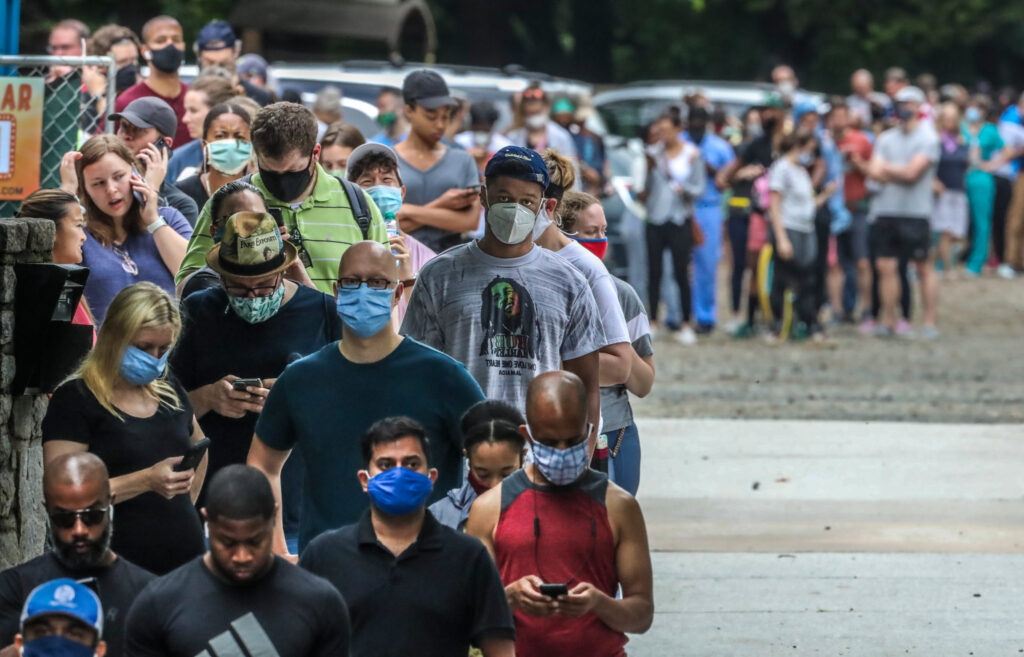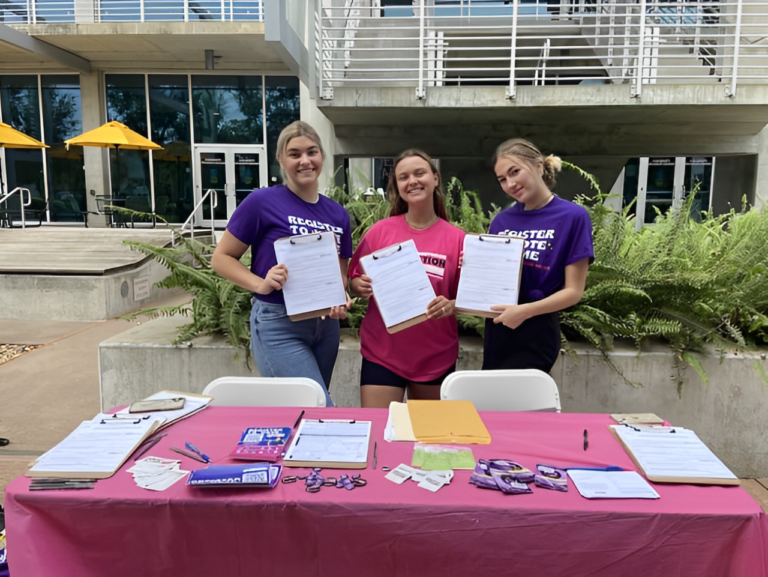Georgia has become embroiled in yet another heated debate over election laws following the contentious 2018 governor’s race between Stacey Abrams and Brian Kemp.
The state gained national attention in 2021 when Republicans, responding to pressure from GOP activists and Donald Trump’s claims of election fraud, passed a comprehensive law imposing new restrictions on voters.
Supporters argue that these challenges are necessary to combat fraud by identifying duplicate records and removing voters who have relocated out of state. However, opponents contend that such challenges are based on flawed data and could unfairly target legitimate voters.
Here’s a deeper look at the issue:
Understanding Voter Challenges:
In Georgia, citizens have the right to challenge an individual’s eligibility to vote. While challenges were traditionally based on personal knowledge, recent trends show an increase in challenges using impersonal data sources like the National Change of Address list. Groups like True the Vote have challenged hundreds of thousands of voters, sparking controversy.
Motivations Behind Challenges:
Proponents of voter challenges argue that existing federal law, which requires a lengthy process before removing voters from the rolls, is insufficient. They believe that voters who have moved or are no longer eligible to vote should be promptly removed to maintain the integrity of the electoral process.

Opposition to Challenges:
Critics view mass-voter challenges as a form of vigilantism that jeopardizes the balance between updating voter rolls and safeguarding voting rights. Groups like Fair Fight Action argue that such challenges disproportionately affect younger, poorer, and minority voters, potentially influencing election outcomes.
Controversial Provisions in the Bill:
The new bill outlines various criteria for removing voters from the rolls, including evidence of relocation or registering elsewhere. However, its inclusion of the National Change of Address list as a basis for removal has drawn criticism due to concerns about its reliability.
Related Articles:
- Revolut Launches Machine Learning Technology for Compliance and Sees a 30% Reduction in Card Fraud!
- Biden Campaign Aims to Win Florida, Despite Trump’s Previous Victories
- Trump Joins Former Senators for Exclusive Atlanta Fundraiser Amid Legal Battles
Potential Impacts and Legal Challenges:
Opponents fear that aggressive voter roll purges could disenfranchise legitimate voters and lead to legal challenges under federal law. Additionally, provisions requiring homeless individuals to use county voter registration offices as their address could pose logistical challenges for voting access.
The American Civil Liberties Union of Georgia has threatened legal action if the bill becomes law, citing violations of the National Voter Registration Act. The bill’s allowance for voter challenges closer to elections could also face legal scrutiny.
As Georgia grapples with the complexities of its election laws, the debate over voter challenges underscores the ongoing struggle to balance electoral integrity with voting rights protections.







+ There are no comments
Add yours